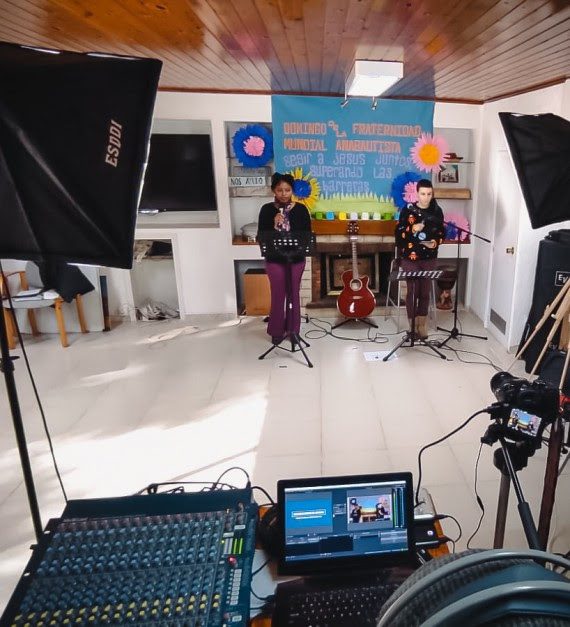

“We’re all going through the same storm but we’re not all in the same boat. Context is everything.”
These words, spoken by a North American pastor, address the divergent responses to the global COVID-19 pandemic. Many congregations in Canada and the United States continue to experience restrictions on in-person meetings, while others have had the freedom to safely gather again.
There is also general recognition that North Americans have received a disproportionate percentage of the global vaccine supply, leaving many to question the injustice of our privilege and affluence and resulting freedoms.
Ever-evolving communication
In March 2020, Canada and the U.S. went into lockdown. Public gatherings—including church—paused. Congregations scrambled to move services online. Pastors worked from home, many struggling with ever-evolving communication tools.
National church leaders and their staff worked hard to support local congregations with resources for video and social media. Local congregations became creative in relating to people by phone, through online networking with porch visits—all socially distanced connections. We also became more connected with the global communion of churches through more frequent news releases and online connections.
“Typically, we lead out of our experience—but none of us have been here before, so we’re all making it up as we go,” says one pastor. “We have become deeply dependent on the Holy Spirit to know how to lead and teach the church community.”
Online necessity
Online presence has become more than a convenience. Some have described it as a social and spiritual necessity for connection—particularly for those who are socially isolated, physically disabled, emotionally depleted and financially impoverished.
In addition to providing a form of fellowship, online connections are addressing the issue of accessibility, particularly as it relates to age, health and mobility. Many who have been relegated to the margins of social life can now participate where they previously had been shut out.
In response, some churches have provided congregants with Internet access and devices to enable connection with families and the broader community.
Pastors are reporting that the majority of online church (some are calling “zoorch”) participants are older adults. Church leaders are also discovering that many younger audiences are “zoomed out.” They are not participating in online gatherings as had been anticipated.
When we gather again
When the pandemic began, people longed for the time when we could gather again. More than a year later, there is hesitancy, fear, caution and restraint. Congregants are slow to rejoin group settings.
The season of the pandemic has been long enough for people to establish new life patterns and create new habits.
- Is this hybrid model of online and in-person gatherings here to stay?
- Will young families and emerging adults return—with or without online options?
- Most importantly: How will people practice their Christian faith in post-pandemic times?
Perhaps hybrid models will be the way of the future. Online options provide opportunity to involve those who are otherwise physically isolated from the community. One way to connect with the global church is to invite an Mennonite World Conference speaker to be virtually present with your congregation.
Global connections provide us with news from our global sisters and brothers so that we may offer informed prayers of intercession and respond to the needs of others in a timely way. MWC has responded to the pandemic with online events such as prayer gatherings, through webinars and videos on our YouTube channel.
“‘Zoorch’ is not enough,” another pastor says. “We need incarnational presence. We need to publicly live out the gospel of Jesus Christ with our global sisters and brothers.”
Together, we remain the church of Jesus Christ – gathered and scattered. Thanks be to God.
This essay is by Gerald Hildebrand, the MWC regional representative for North America. He lives in Winnipeg, Manitoba, Canada, where he is a member of River East Church, a Mennonite Brethren congregation.


Mennonite World Conference is a communion of Anabaptist-related churches linked to one another in a worldwide community of faith for fellowship, worship, service, and witness. USMB is a member conference of this global ministry.






















